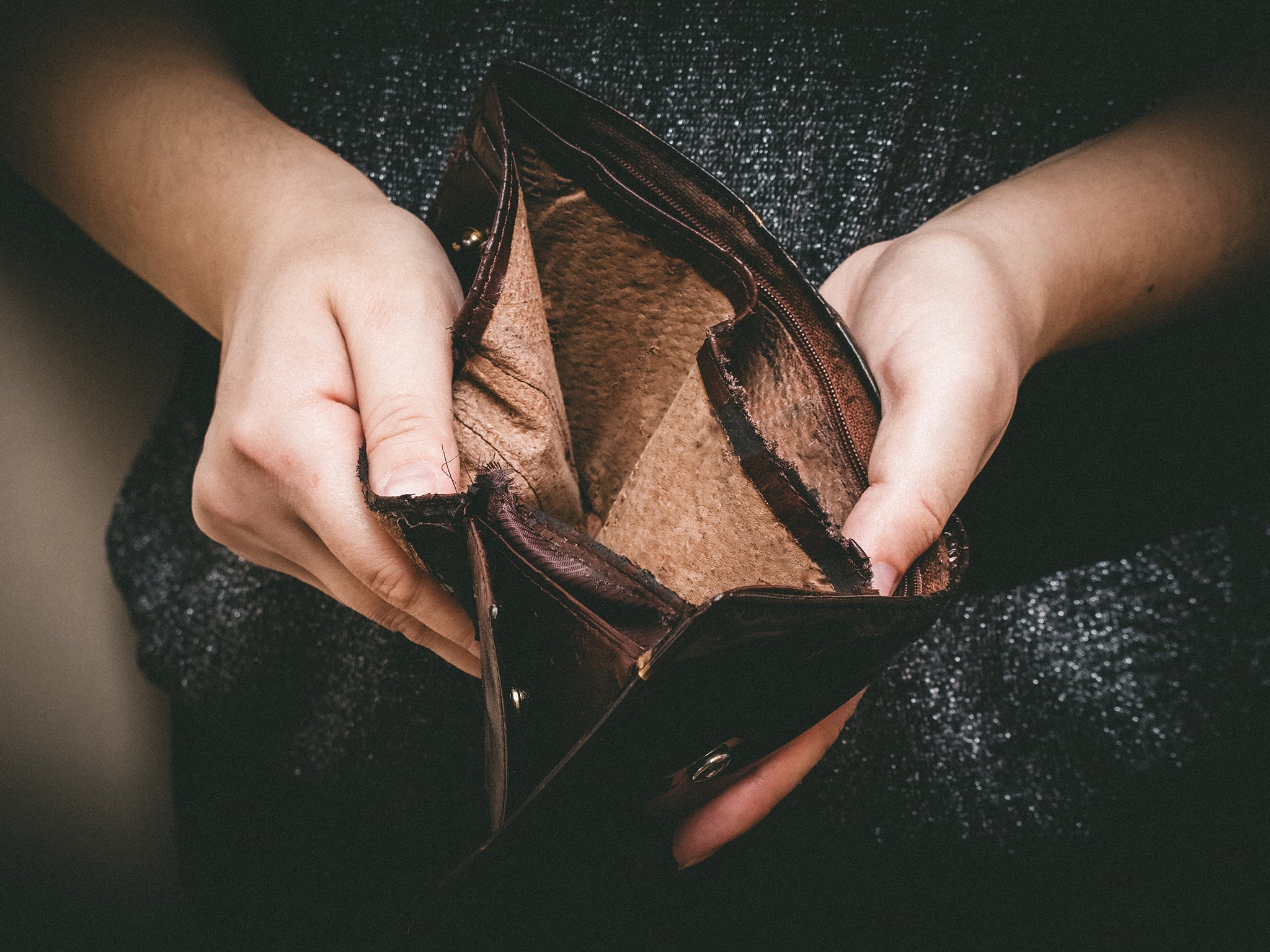How women can spot the signs of economic abuse
A lack of understanding means many victims don’t recognise the early signs of controlling behaviour by a family member or partner

Your support helps us to tell the story
From reproductive rights to climate change to Big Tech, The Independent is on the ground when the story is developing. Whether it's investigating the financials of Elon Musk's pro-Trump PAC or producing our latest documentary, 'The A Word', which shines a light on the American women fighting for reproductive rights, we know how important it is to parse out the facts from the messaging.
At such a critical moment in US history, we need reporters on the ground. Your donation allows us to keep sending journalists to speak to both sides of the story.
The Independent is trusted by Americans across the entire political spectrum. And unlike many other quality news outlets, we choose not to lock Americans out of our reporting and analysis with paywalls. We believe quality journalism should be available to everyone, paid for by those who can afford it.
Your support makes all the difference.One in six UK women say they have experienced economic abuse from a family member or partner, yet it is still not widely understood, experts warn as a new campaign attempts to highlight the most vulnerable points in people’s lives.
Currently, a lack of understanding among the wider population means many victims don’t recognise the early signs of controlling behaviour and friends and family members don’t know how to help.
This is despite the fact that economic abuse has now been formally recognised and defined in the Domestic Abuse Act, passed in April.
A new guide, “Controlling Your Financial Future – 6 Moments That Matter for Girls and Women”, has been launched to pinpoint six key moments in the lives of women and girls where they may be more vulnerable to economic abuse.
It begins with education and ends with ill health and later life care.
At each life stage the risks are identified and help is given so women and girls can stay in control of their own financial future.
It has been created to help victims to spot the early signs of abuse, give advice on how victims can take back financial control and to give them information on where to get help.
Developed by Jane Portas, co-founder of Insuring Women’s Futures, and the charity Surviving Economic Abuse (SEA), the guide that can be downloaded for free has been created with the help of experiences from victims of economic abuse.
Economic abuse is defined as “any behaviour that has a substantial and adverse effect on a survivor’s ability to acquire, use, or maintain money or other property or obtain goods and services”.
It is a type of controlling and coercive behaviour and 95 per cent of victims of domestic violence say they have experienced economic abuse. Yet most of us still aren’t aware of what it is or how to help those at risk.
The first stage at which financial stability can be impacted by an abuser is while growing up, studying or re-qualifying. The skills and qualifications women gain have a direct impact on the amount of money they earn.
Entering and re-entering the workplace is next, as a key financial stage affecting wages and having a direct impact on later-life savings through pensions and retirement savings.
Marriage and relationship breakdowns is another key moment, especially for those who are financially dependent on their partners. The rules change around those who are married or in a civil partnership and those who co-habit and it’s important to know what you’re entitled to in each situation.
Having children and motherhood including sharing and paying for childcare and deciding who takes time off work, if anyone, can be a big decision. These decisions impact a woman’s income and her career as typically it is women who are the main caregivers. Many women are also taking on the unpaid job of caring for elderly relatives at the same time as young children, while trying to juggle a career and income.
Later life planning, for retirement is the next stage and this is often more complex for women as they may have earned less or taken career breaks. As we all live longer, this means we need to budget more money for retirement than ever before, with fewer funds.
The last key stage in a woman’s financial lifetime is end of life care, illness and dying. Having safeguards in place and affairs in order can make this stage easier both for the person in this stage and their friends and family members.
The reason these stages have been identified is that they can affect someone’s entire life, and their financial stability. By recognising each stage, and how women need to protect themselves and put plans in place to secure their future, can help potential victims of economic abuse.
Financial service firms also have a role to play, and the report says they need to be aware of how abusers can use companies to carry out abuse.
Jane Portas said: “The 6 Moments That Matter are key financial life stages that can help everyone to secure their financial future.
“Economic abuse impacts girls and women from all walks of life and we hope by helping them to be better informed, we can put an end to economic abuse.”
Dr Nicola Sharp-Jeffs OBE, founder and CEO of Surviving Economic Abuse, said: “Economic abuse can happen to anyone, at any life stage, and can have lifelong consequences that jeopardise their financial wellbeing.
“I want to thank the victim-survivors who bravely shared their experiences and shaped this guide in the hope it would prevent other girls and women going through the same. We hope it will be read by as many women as possible.”
Join our commenting forum
Join thought-provoking conversations, follow other Independent readers and see their replies
Comments